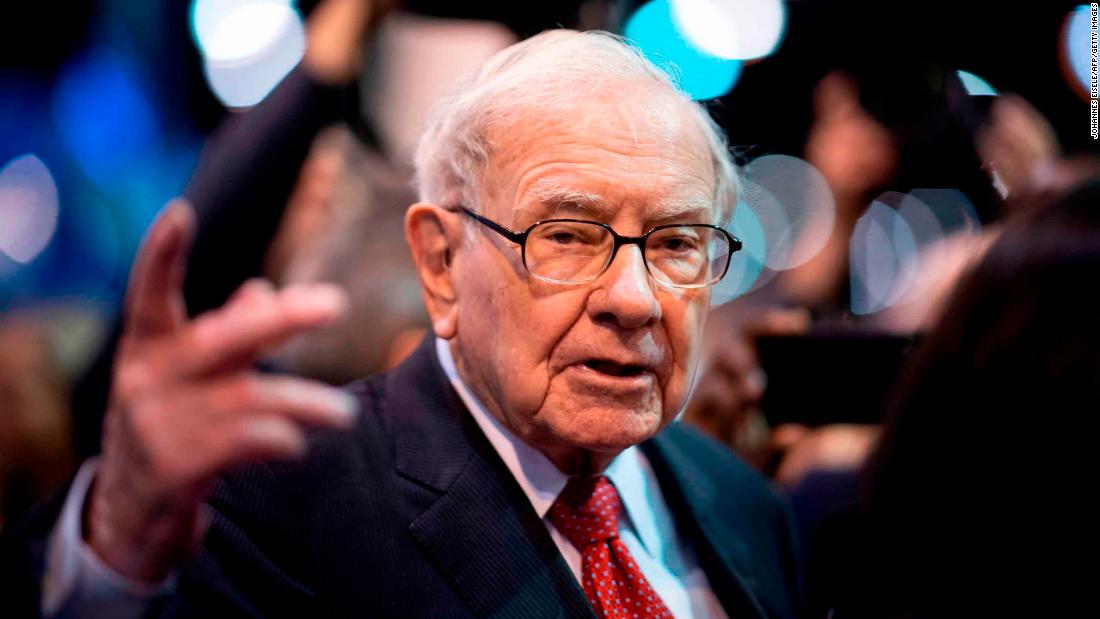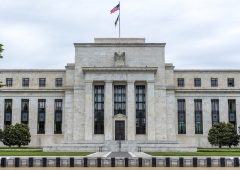Warren Buffett’s Top Stock Picks for Stable Returns
11.07.2024 9:00 2 min. read Alexander Stefanov
Known as the "Oracle of Omaha," Warren Buffett leads Berkshire Hathaway with a philosophy rooted in compound investing.
His stock picks emphasize dividend-paying companies, appealing to both novice and seasoned investors alike. Here are three companies, that you should consider:
American Express, despite being Berkshire Hathaway’s third-largest holding, is often overlooked as a Buffett favorite. Holding 151.6 million shares for decades, the company excels as a rewards program manager. Its cards offer incentives for dining, ride-hailing services, and hotel stays, surpassing competitors like Visa and Mastercard (also held by Berkshire).
Despite economic challenges, American Express has shown robust growth, with a 25.09% increase year-to-date and a remarkable 37.23% surge over the past 12 months. Although its 1.2% dividend yield may not dazzle, the company boasts steady dividend growth, raising its payout from $0.07 to $0.70 per share over three decades.
READ MORE:

Jerome Powell Speaks Again on Rate Cuts
VeriSign, another Buffett pick, manages website name registrations, a vital but less visible role in the internet infrastructure. While not a high-growth sector, VeriSign’s stable revenue and profit margins make it a reliable investment. Unlike many Buffett picks, VeriSign doesn’t pay dividends but instead enhances shareholder value through aggressive share buybacks, leading to substantial stock gains over the years.
Chevron, a $19 billion stake in Berkshire’s portfolio, reflects Buffett’s pragmatic approach to energy stocks. Despite renewable energy advancements, Buffett remains optimistic about Chevron’s prospects, supported by projections of continued global crude oil demand. Chevron’s stock has risen 2.81% in 2024 amid geopolitical tensions and lower OPEC output, offering investors a robust dividend yield of 4.2%.
These picks illustrate Buffett’s strategy of diversification across sectors, providing a solid entry point into his renowned investment philosophy
-
1
Billionaire Slams Meme Stock Hype and Sounds Alarm on U.S. Fiscal Health
15.06.2025 18:00 2 min. read -
2
Robert Kiyosaki Predicts 2025 “Super-Crash,” Urges Hoarding Gold, Silver, and Bitcoin
23.06.2025 13:31 2 min. read -
3
Nassim Taleb Says Global Trust Is Shifting from the Dollar to Gold
22.06.2025 17:00 1 min. read -
4
Billionaire Investor Sees Dollar Crash If Key Support Breaks
18.06.2025 15:00 1 min. read -
5
Geopolitical Shockwaves Hit Ethereum Hard While Bitcoin Stays Resilient
22.06.2025 16:21 1 min. read
Robert Kiyosaki Predicts When The Price of Silver Will Explode
Robert Kiyosaki, author of Rich Dad Poor Dad, has issued a bold prediction on silver, calling it the “best asymmetric buy” currently available.
U.S. PCE Inflation Rises for First Time Since February, Fed Rate Cut Likely Delayed
Fresh data on Personal Consumption Expenditures (PCE) — the Federal Reserve’s preferred inflation gauge — shows inflation ticked higher in May, potentially delaying the long-awaited Fed rate cut into September or later.
Trump Targets Powell as Fed Holds Rates: Who Could Replace Him?
Federal Reserve Chair Jerome Powell is once again under fire, this time facing renewed criticism from Donald Trump over the Fed’s decision to hold interest rates steady in June.
U.S. National Debt Surge Could Trigger a Major Crisis, Says Ray Dalio
Billionaire investor Ray Dalio has sounded the alarm over America’s soaring national debt, warning of a looming economic crisis if no action is taken.
-
1
Billionaire Slams Meme Stock Hype and Sounds Alarm on U.S. Fiscal Health
15.06.2025 18:00 2 min. read -
2
Robert Kiyosaki Predicts 2025 “Super-Crash,” Urges Hoarding Gold, Silver, and Bitcoin
23.06.2025 13:31 2 min. read -
3
Nassim Taleb Says Global Trust Is Shifting from the Dollar to Gold
22.06.2025 17:00 1 min. read -
4
Billionaire Investor Sees Dollar Crash If Key Support Breaks
18.06.2025 15:00 1 min. read -
5
Geopolitical Shockwaves Hit Ethereum Hard While Bitcoin Stays Resilient
22.06.2025 16:21 1 min. read

